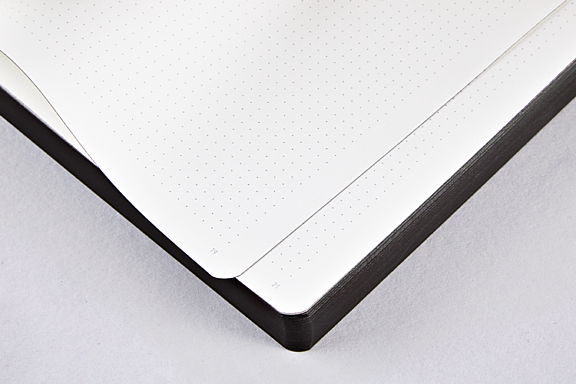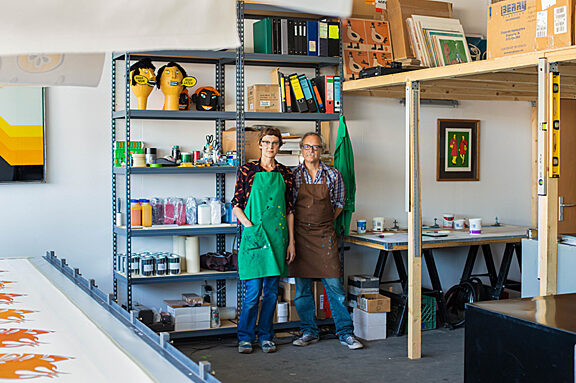Traces
inspiration, nuuna, brandbook
Swiping andtiping on your smartphone is of purely functional nature. The use of a notebookon the other hand enables a completely different experience - a deep and sensual experience.

You don't only use books, you touch them: You feel the cover material, touch the minting, caress the silk-screen printing, sense the smell of paper. In contrast, the speed and evanescence of the digital world seems shallow. The immaterial data behind flat screens is all too distant. There you won't find anything to touch or feel. Only the flat screen, newest trends, almost nothing. Smooth as glass, intended for quick moves, nothing to hold on to or to pause.
On the notebook though you'll leave material traces almost naturally. By writing down your thoughts you preserve the process of thinking immediately: every slip, every coffee stain and every torn-out page is a part of this process. Thus you not only add content by writing down your thoughts, but you change the very materiality of your notebook and make it your personal companion. Sure, those flat technical objects are a fetish and show signs of use. Still they are something made to be thrown away.
Books on the other hand are made to be kept. Whereas every crack on a technical object is a tiny disaster, you can actually enjoy the manifestations of your personal history on your notebook.
On the notebook though you'll leave material traces almost naturally. By writing down your thoughts you preserve the process of thinking immediately: every slip, every coffee stain and every torn-out page is a part of this process. Thus you not only add content by writing down your thoughts, but you change the very materiality of your notebook and make it your personal companion. Sure, those flat technical objects are a fetish and show signs of use. Still they are something made to be thrown away.
Books on the other hand are made to be kept. Whereas every crack on a technical object is a tiny disaster, you can actually enjoy the manifestations of your personal history on your notebook.




